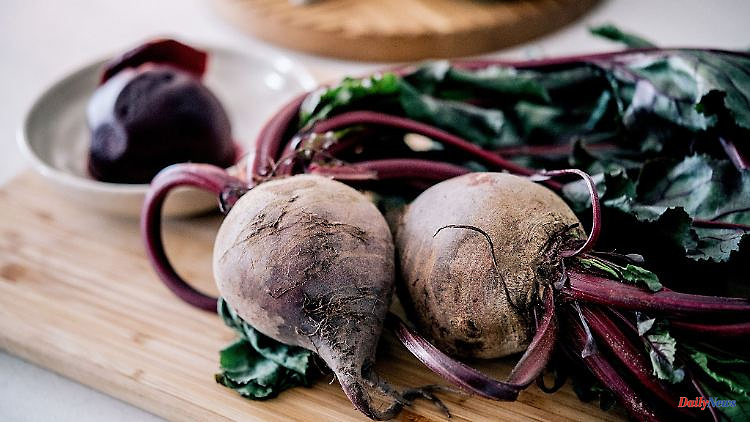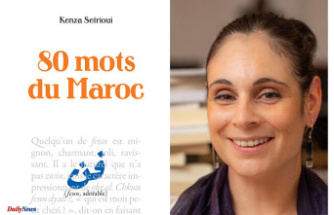Until now it has always been said that a long life is favored by Mediterranean or Asian cuisine. But they are now getting competition - from the north. At least you read again and again that it should be just as good for your health. So a check up.
The north is in. Not only in terms of fashion or interior design, but also when it comes to food, some people are looking towards Scandinavia. But "Nordic Diet", "New Nordic Diet" or even "Viking Diet"? What's that on the plate? And is this diet as good for health and life expectancy as the Mediterranean diet, which is considered the gold standard?
Nordic cuisine is based on regional foods and traditional diets from northern European countries. It was developed around 2010 by the Nordic Food Policy Lab committee. The aim of this initiative by the Northern European prime ministers: to put more regional and sustainable food on the table.
"It's mainly about plant-based and unprocessed foods that can be found in northern European countries," says Carolin Groth. She is a consultant in the Food and Nutrition department of the Hamburg Consumer Advice Center. The Nordic diet includes whole grains, especially rye, barley and oats. Root vegetables such as beetroot and carrots also play an important role, as well as berries and regional fruit such as apples and pears. "Nuts, mushrooms and legumes are also part of the menu," says Carolin Groth.
These plant-based foods are complemented by high-fat fish like salmon and mackerel and low-fat dairy products. Oils in the Nordic diet mostly consist of rapeseed, sunflower and flaxseed. According to Groth, meat is rarely on the menu, usually only once a week.
"But there is no real differentiation from the typical Mediterranean diet, because the basic idea is similar for both forms of nutrition," says Carolin Groth. Because the Mediterranean diet also scores with many plant-based foods: in addition to vegetables, you can find fruit, nuts, seeds, legumes, cereals, fish and olive oil. Meat and dairy products are also rarely served.
All of this provides the body with vitamins, minerals, fiber and secondary plant substances. There are also fish and vegetable fats, so a good supply of healthy fatty acids. "The fact that meat is rarely consumed in both diets is positive from a health perspective," says Groth.
For the nutritionist Prof. Johannes Wechsler, on the other hand, it is clear: the Nordic diet cannot keep up with the Mediterranean diet. "I can't take a stand for the Nordic diet because there is no reliable knowledge about it," says the President of the Federal Association of German Nutritionists (BDEM).
The facts should therefore speak for the Nordic diet. Namely that people in Scandinavia live longer than in the south. "But life expectancy is almost the same in northern and southern Europe, at around 85 years. Plus or minus a year doesn't matter at all." Mortality rates are also similar across the EU. According to Wechsler, however, they are more dependent on medical care and less on nutrition. Switching to the Nordic diet in the hope of prolonging life - so it doesn't work.
Nor can Nordic cuisine give the body everything it needs, says Wechsler. "Because it's relatively low in vitamins and fiber, but high in fat. The Norwegians eat little oranges or lettuce. That just doesn't grow 'up there'." In his opinion, dietary fiber is also missing in the Nordic diet - for example from dark breads. The useful and good thing about this diet, however, is the supply of omega-3 fatty acids. You eat a lot of fish and little meat.
But where and how do you eat particularly healthy? Wechsler emphasizes that no scientifically based nutritional recommendation is about doing away with traditional dishes such as roast pork in Bavaria or fish sandwiches in Hamburg. These diets are part of the culture of a region. "It's just the amount that makes the difference. Any roast pork is healthy as long as people don't eat huge portions of it every day."
Wechsler therefore advocates a diet that takes precedence over the Nordic and Mediterranean aspects: "Reasonable nutrition is based on basic scientific principles. And these can be observed in Helsinki just as much as in Rome." According to Wechsler, the optimal diet should be low in fat and salt and contain little animal protein and fat. Short carbohydrates, i.e. sugar, and cholesterol are also better eaten in moderation. Instead: lots of vegetables, salad, fiber and omega-3 fatty acids, for example through fish twice a week.
"But much more important than nutrition is the energy balance: Any diet that is consumed in excess is harmful," says Wechsler. Eating too much salt and fat increases your risk of a heart attack or stroke. When it comes to life expectancy, the nutritionist is certain: "We still have room for improvement!"












